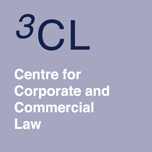The purpose of the Cape Town Convention Academic Project is to facilitate and further the academic study and assessment of the Convention on International Interests in Mobile Equipment (the Cape Town Convention), together with its Protocols, for the benefit of scholars, students, practising lawyers, judges, governments officials and others working in the relevant industries. The project is a joint undertaking between UNIDROIT and the University of Cambridge Faculty of Law, under the auspices of the 3CL.
The Cape Town Convention is one of the most important and innovative international conventions ever to have been concluded in the field of transnational commercial law and already has 82 Contracting States, making it one of the most successful commercial law treaties. The Convention and its Protocols provide a detailed legal framework for the secured financing and leasing of uniquely identifiable high value mobile equipment, and they address many aspects of commercial and financial law, including property rights, insolvency, electronic commerce, and dispute resolution. The study of their provisions, and their implementation and operation, is of great conceptual and substantive importance. The project seeks to enhance this study, and to further understanding and effective implementation of the treaty and its protocols, as well as advancing its aims.
Information about the Cape Town Convention can be found on the websites of UNIDROIT, the legal depository of the treaty, and the Aviation Working Group, the founding sponsor of the project.
The main activities of the project are:
- a comprehensive digitized and searchable repository including:
- primary and secondary materials on the Convention and its Protocols;
- preparatory work leading to their adoption;
- materials on their implementation in national law;
- Chapter-by chapter versions of Professor Sir Roy Goode’s Official Commentaries on the Convention and its Protocols, in order to facilitate academic research;
- reports on judicial activity relating to the Convention and its Protocols;
- reports on administrative and non-judicial activity relating to the Convention and it Protocols.
- the issuance of annotations to the Official Commentary on the Convention and the Aircraft Protocol;
- an annual conference, as well as other workshops and smaller events;
- the publication of the Cape Town Convention Academic Journal;
- two related projects:
The project seeks to draw out and assess general principles and themes seen in the broader context of transnational commercial law, such as
- the relationship between commercial law reform and economic benefit;
- the relationship between international and national law;
- the interplay between private law and public law;
- the use of a system of opt-in and opt-out declarations to provide flexibility in the application of provisions so as to respect national sensitivities; and
- the role of electronic commerce, including the use of electronic registries.
The project started in July 2011 and was originally a collaboration between the University of Oxford and the University of Washington, in collaboration with UNIDROIT. The Cambridge Law Faculty (3CL) became a partner in 2019, when one director of the project, Louise Gullifer, joined the Cambridge Law Faculty. Eight annual conferences have been held in Oxford, and the ninth was held at UNIDROIT, Rome, and online on 10 and 11 September 2020.
The directors of the project are Professor Louise Gullifer, Rouse Ball Professor of English Law, University of Cambridge; Jeffrey Wool, Senior Research Fellow at Harris Manchester College, Oxford and Secretary-General of the Aviation Working Group; and Professor Ignacio Tirado, Secretary-General of UNIDROIT and Professor of Corporate, Banking and Insolvency Law, Universidad Autonoma de Madrid. The project has two Senior Advisers: Professor Sir Roy Goode, Emeritus Professor of Law, University of Oxford; and Rob Cowan, Managing Director of Aviareto Ltd (which operates the International Registry of Mobile Assets (Aviation) under the Cape Town Convention).
The Aviation Working Group is the founding sponsor of the project. Other organisations who have cooperated with the project are the International Civil Aviation Organization (ICAO), the Intergovernmental Organisation for International Carriage by Rail (OTIF), the Rail Working Group (RWG) (particularly with the rail-related website content) and the International Society of Transport Aircraft Trading (ISTAT) who kindly contributed to the cost of the project’s original website.


